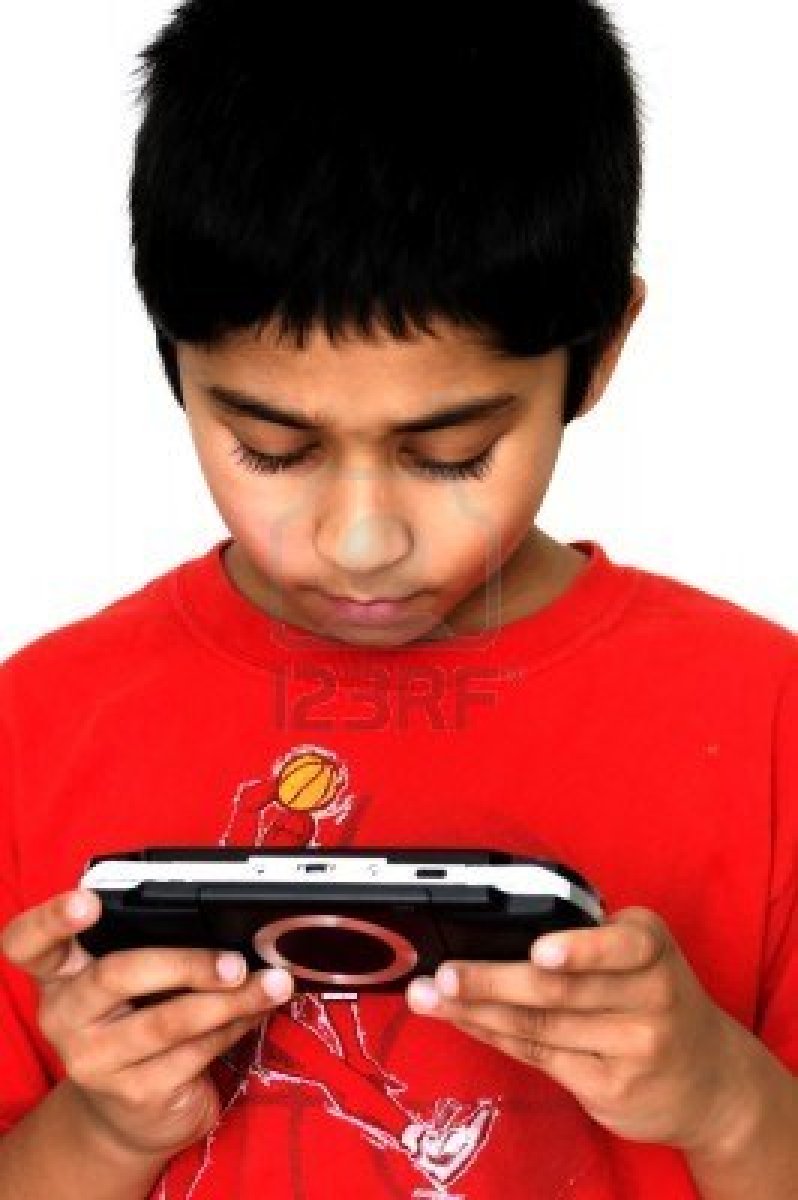In the wake of several major tragedies involving young people, some have pointed their fingers at video game violence. While it’s true many video games feature violence, very few kids who play them — perhaps 0.15 percent — go on to commit actual crimes. Some of the correlation, says Psychology Today, may be because some kids with violent tendencies also play video games. Thus, it’s not the video games themselves that caused the problem. Still, if parents are concerned, there are a few things they can do.

Check Game Ratings
The Entertainment Software Ratings Board (ERSB) is an independent organization that evaluates every major video game release for age-appropriate content. Game boxes feature this rating prominently as do commercials and posters. As a parent concerned about video game violence, look for the ERSB rating on every game your child wants to play. Most will give a listing of any objectionable content as well. ERSB ratings are:
- EC: Early Childhood— Appropriate for kids ages 3and older. These games are also violence-free.
- E: Everyone—Appropriate for kids 6and older. These games are unlikely to contain violence other than minimal cartoonish, fantasy violence — which will be indicated.
- E10+:Everyone 10 +— Appropriate for kids 10 and older. These games may contain some mild fantasy violence.
- T: Teen — Appropriate for kids ages 13 and older. These games may feature violence, but not graphic violence.
- M: Mature — Unsuitable for children under the age of 17. These games may contain graphic violence.
- AO: Adults Only— Not for minors. These games are likely to contain graphic violence.
You may also see the rating “RP,” which means “Rating Pending.” By the time the game is released, there should be a rating attached. Video games have a rating system for a reason; take advantage of it. Allow your kids to play age-appropriate games or games centered on music or puzzle-solving instead.
Limit Game-Playing Time
More alarming than video game violence may be a child’s video game obsession. As a parent, encourage your child to live a healthier life by limiting video-game playing to no more than an hour a day or less for younger children. Encourage your kids to develop other hobbies and go outside whenever possible. Do not entirely restrict games in your household,as children may go to a friend’s house to play. There, you won’t be able to monitor what they’re playing.
Open Lines of Communication
Healthy children have healthy relationships with their parents. Let your child know they can always talk to you and show interest in their social and academic lives. Stay involved in your child’s life and you’ll be able to notice signs of distress that appear, such as isolation, mood swings or preoccupation with violent thoughts. If you’re concerned about your child’s mental health, speak with your child’s doctor as soon as possible.
Be More Involved
Overall, an involved parent is more likely to notice the signs of mental illness, more likely to exert authority over their kidsand better able to monitor the games they’re playing. Take your kids on family outings, and provide them with other mental and physical outlets for their energy.
If you’re concerned your child may go to a friend’s house to play violent games, speak with the friend’s parents and ask that they monitor the game playing while your child is over. If the parents refuse or are hard to reach, offer to host the friend at your home instead. Don’t blame video game companies for producing violent content; instead, steer your children away from the content.
If you’re concerned about video game violence, use game ratings to choose games appropriate for your children, establish limits for game-playing time, develop open lines of communication with your kids and become a more involved parent.
About the Author:Floyd Crespo is a contributing writer who graduated with a degree in forensic psychology and who has thoroughly studied the criminal mind. If you are interested in doing the same, he suggests you click here for forensic psychology degree information.






